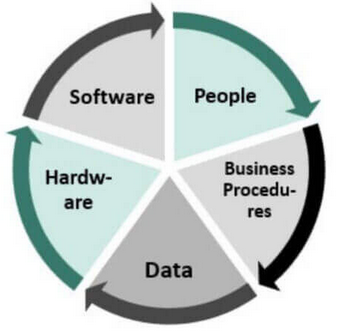
This comprehensive micro-credential course provides a holistic understanding of the integration between information systems and effective business management practices. Participants will explore the strategic role of information systems in modern organizations, focusing on their impact on decision-making, operational efficiency, and competitive advantage. The curriculum encompasses key topics such as enterprise resource planning (ERP), customer relationship management (CRM), business intelligence (BI), and data analytics for informed decision-making. Additionally, the course covers methodologies for aligning information systems with organizational goals, emphasizing managerial aspects like system implementation, security, and governance. Through case studies and practical exercises, students will develop the skills to evaluate, select, and leverage information systems to enhance business processes and achieve strategic objectives.
- Teacher: George Dafoulas
- Teacher: Anna-Maria Kaminska
- Teacher: Harokopio University of Athens

The educational course "FinTech in Digital Economy" offers a comprehensive exploration of the transformative role of financial technologies in reshaping the modern financial landscape. Focusing on the intersection of finance and technology, the course equips participants with a deep understanding of FinTech fundamentals, innovative tools, and strategies driving the digital economy.
Through a combination of theoretical insights and practical applications, the course covers critical areas such as digital banking, artificial intelligence, blockchain, and big data. Participants will analyze emerging trends, assess FinTech's impact on global markets, and evaluate regulatory and ethical considerations. By engaging in real-world case studies and projects, students will develop problem-solving skills, strategic thinking, and a practical understanding of FinTech ecosystems, including startup models and funding mechanisms.
This course is designed to prepare learners for success in the dynamic FinTech sector, fostering a forward-looking perspective on leveraging technology for financial innovation and growth.
Prerequisites
Basic understanding of finance, familiarity with fundamental financial concepts, such as banking, investments, and financial markets. Basic understanding of technology concepts, as the course may delve into technological aspects of financial innovations, proficiency in using computers, software, and online platforms, sufficient level of English language.
- Teacher: Halyna Humenna
- Teacher: Anna-Maria Kaminska
- Teacher: Sophiia Lobozynska
- Teacher: Ivan Franko National University of Lviv

The Green Business Models course equips participants with the knowledge and tools to integrate sustainability into business operations. Learn to design eco-friendly products, adopt circular economy practices, and implement strategies that benefit both the environment and your company. Through interactive lectures, case studies, and hands-on workshops, you'll gain practical skills to create innovative, green business models. Upon completion, receive a certification that showcases your expertise in sustainable business solutions.
- Teacher: Anna-Maria Kaminska
